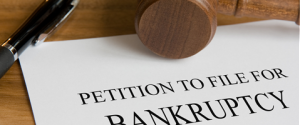Bankruptcy Lawyer Tampa
Get The Help You Need From an Experienced Tampa Bankruptcy Lawyer Today!
At the law office of Tampa bankruptcy lawyer Roland A. Hermida, we believe in second chances. We believe that anyone can reorganize their finances, get rid of their debt, restore their credit rating, and begin working towards financial stability. Changes in health, employment, marital status, or the economy are the  main reasons people have to file bankruptcy. Filing a bankruptcy can be a complicated, life changing process. It doesn’t have to be terrifying.
main reasons people have to file bankruptcy. Filing a bankruptcy can be a complicated, life changing process. It doesn’t have to be terrifying.
People who are having trouble paying their debts sometimes consider bankruptcy as a strategy for resolving this situation. An individual, called a debtor, usually files bankruptcy to obtain a discharge, which will wipe out his or her debts so that they will not have to be paid. Once the bankruptcy begins, creditors cannot try to collect debts from the bankruptcy debtor or sue the debtor to obtain a judgment without obtaining the bankruptcy court’s permission. With a few exceptions, the creditors have no claim on the debtor’s future income or future assets.
- Bankruptcy Attorney Tampa
- Chapter 7
- Chapter 13
- Free Consultation
A Bankruptcy Law Firm in Tampa, Florida
The law office of Roland A. Hermida, located in the heart of Tampa, FL, is here to help you stop the harassment of creditors and move you and your family toward financial recovery. As an experienced Tampa bankruptcy attorney, Roland A. Hermida is helping clients in the Tampa area reclaim their financial footing . Our bankruptcy practice is dedicated to helping individuals and small businesses in Tampa get relief from unmanageable debt by using the benefits provided by the federal bankruptcy laws and bankruptcy courts.
A fresh start is just a phone call away. Call Today For a Free Consultation!
Contact Tampa Bankruptcy Lawyer Roland A. Hermida at (813) 221-0033.
TYPES OF BANKRUPTCY
There are two main types of bankruptcy cases generally used by most consumers. These are referred to by their chapter number in the Bankruptcy Code. Determining which type of Bankruptcy to file is based upon numerous factors and analysis, including but not limited to amount of income, amount of assets, amount of debts, types of arrearages and goals of the debtor.
- Chapter 7: This is a liquidating bankruptcy, the most common bankruptcy case. In return for having debts discharged, the debtor must turn over to the bankruptcy trustee all property except for certain assets which applicable state or federal law allows the debtor to keep as exempt. The trustee sells the property and distributes the proceeds to the creditors according to priorities established by law. Very often there is not enough money to pay for anything more than the costs of administration, and the creditors will receive nothing. The principal advantage of Chapter 7 is that the debtor emerges from bankruptcy without any future obligations on his or her discharged debts.
- Chapter 13: This case often used by individuals who want to catch up past due mortgage or car loan payments and keep their assets. In Chapter 13, the debtor must propose in good faith to pay all or part of the debts from future income over a period of time ranging from three to five years. If the court approves the plan of payment, the debts may be settled in this manner, even if the creditors are not willing to go along with the plan. If the debtor makes the payments as required, he or she will not have to surrender property to the trustee.
Using a Chapter 13 can be strategic for a debtor as compared to a Chapter 7 bankruptcy. Some of the debts not discharged in a Chapter 7 will be discharged once the debtor completes a Chapter 13 plan. Also, the debtor can pay most non-dischargeable federal taxes over the term of the Chapter 13 plan. However, Chapter 13 can only be used by an individual debtor, only if the total debts owed are less than certain limits for secured and unsecured debts. An individual engaged in business not as a corporation might use Chapter 13 to pay debts or settle them over a period of time while he or she continues to own and operate the business. Generally, businesses and very high debt or asset individuals may need to look to other Chapters of the bankruptcy code for protection.
